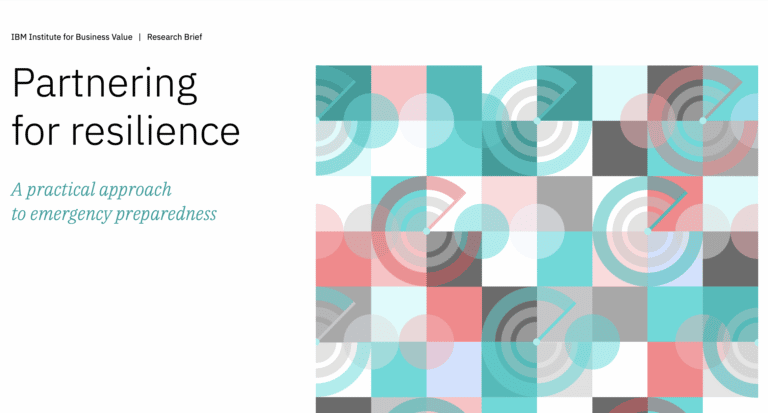Editorial
Once there was an accident involving a driver, who let his girlfriend drive a bus for him. Then there was this tourist place tragedy involving product spillage. In another incident, the CEO of a company was found dead in his hotel room miles away from where he was supposed to be. There was also this scandal concerning the contamination of baby food. In another bizarre incident, customer complaint numbers reached a record level as customers got stuck in cruise control.
With just one exception, I was personally involved in all the above cases. None of them were in any way connected to the other but there was a common point — these incidents drew our attention to the criticality of having an efficient crisis management system in place.
According to the FEMA glossary of terms, crisis management functions can be grouped into four phases: Preparedness, Response, Mitigation, and Recovery. For today’s leaders, preparedness and crisis anticipation have become more critical than ever.
It is impossible to be ready for anything that comes your way, but sometimes, a few basic elements can help to create some order in the chaos resulting from a crisis. A little bit like being prepared for a fire drill. If you have clear roles defined, say for instance one crisis coordinator per relevant org unit, and some key best practices lined up, checklists as well as clear guidelines on who should talk externally and who should not, you can stay on top of the situation and prevent it from spiraling out of control.
In this issue of This Week in Consulting, we explore various aspects of crisis management, from using simulation to preparing for crises to organizing communication. We also look at how to involve the key stakeholders, some best practices from a leadership standpoint, and how to flip the script and in some cases turn the crisis into an opportunity.
Enjoy the read. Feel free to comment. Would love to hear your views.

Laurent THOMAS
Chairman Consulting Quest
This week’s must read
In This Week’s Must Read, we explore various aspects of crisis management, from using simulation to preparing for crises to organizing communication. We also look at how to involve the key stakeholders, some best practices from a leadership standpoint, and how to flip the script and in some cases turn the crisis into an opportunity.
To have confidence in an organization’s crisis management plan, effective and realistic simulation exercises must be done to test the entire team. The effectiveness of the simulation can be measured by the level of realism experienced during it and the amount learned from it after. This insightful piece from Deloitte explains how to prepare for a crisis simulation, how and where to begin, how businesses can design crisis management exercises across all dimensions, and more.
This week’s media
Businesses are getting bombarded by crises every day and our lives are not getting any easier. Crises can range from cyber and ransomware attacks to shooting at your workplace. A three-year-long pandemic crisis has already established the criticality of having an effective crisis management plan at your disposal. This webinar discusses ways to increase your organization’s crisis management capability including what should be included in every crisis management and communication plan.
Thought Leadership
The COVID-19 pandemic and geopolitical tensions have created a volatile business environment, leading to an increase in restructuring cases for German companies. These restructurings are expected to be complex and uncertain, requiring a sound communications strategy to maintain stakeholder trust and confidence in company leadership. Now, more than ever, a sound restructuring communications strategy — with competence and commitment at its core — is key to retaining stakeholder buy-in and confidence in company leadership to carry out its plan.
Ferran Reverter Planet, the CEO of the MediaMarktSaturn Retail Group spoke with Oliver Wyman Senior Partner Maria Miralles, about the challenges and impact of the COVID-19 pandemic and lockdown on MediaMarktSaturn and how the company rose to the test. Did the Pandemic prove to be a kind of booster for the company? What were the key success factors for mastering the pandemic? Do new technologies and data reinforce the trend toward personalized offers? The conversation revolves around these and many other interesting questions.
Leaders have learned to prepare for “future shocks” after three years of dealing with the global pandemic. A roundtable of government leaders and emergency management experts, including FEMA, OECD and the former Governor of Maryland, came up with six practical steps for governments to better prepare and respond to the crisis. These steps include building response and community networks, defining communication and data-sharing strategies, and addressing budget and workforce challenges. These suggestions provide a starting point for governments to better support their citizens during disasters.
Since 9/11, the crisis management community has made great strides in addressing the negative impacts of disasters on American lives and livelihoods. Yet new challenges are emerging, and the crisis management community will need to work hard to overcome them over the next 20 years. This article explores five questions that the community can consider to ensure the security, resilience, and prosperity of communities in the future.
This week’s consulting news selection
The top European consulting firm in technology, data, and people, Valcon has announced that it promoted over 150 of its people across its three main geographies in December 2022 and January 2023. With 109 in the Netherlands, 24 in the UK and 18 in the Nordics|
Mobeus has contributed a total of £10.2 million in loan and equity in order to acquire a minority position in LACE Partners and assist in its strategic development and growth|
Souheil Moukaddem has been named the new leader of Oliver Wyman’s Cyber Risk platform, a division of Marsh McLennan that offers global management consulting services.|
Stuart Baird has been appointed as Vice President of Business Development by Capital Consulting International (CCi), a global leader in integrated delay, quantum, and technical expert solutions for the insurance and construction industries. Stuart will have a global position and be largely responsible for growing CCi’s clientele throughout the Americas, Asia Pacific, Middle East, and Europe.|
Laurent is the Chairman and Co-founder of Consulting Quest. Focused on greater value creation, and being thoroughly familiar with Consulting, Laurent has sourced and sold millions of dollars worth of Consulting over the course of his career. Prior to joining Consulting Quest, Laurent was Executive Vice President Oil and Gas at Solvay and Senior Partner Transformation at Oliver Wyman.








